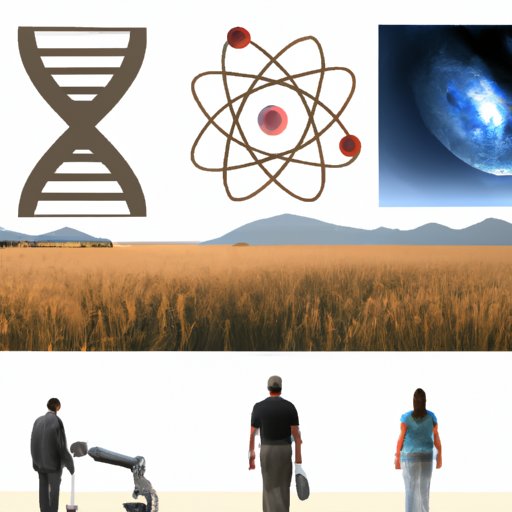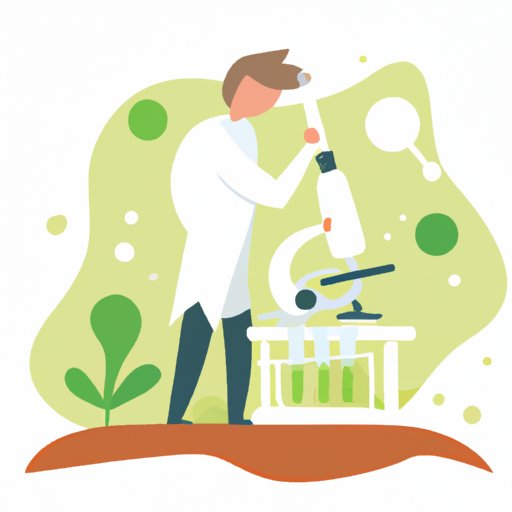Introduction
Science is the systematic study of the structure and behavior of the physical and natural world through observation and experiment. It encompasses a wide range of topics, from the study of the universe to the study of microscopic organisms. The purpose of science is to explore and understand the natural phenomena that exist in the world around us, and to use this knowledge to improve our lives.
Benefits of Scientific Research
One of the primary benefits of scientific research is improved quality of life. Through scientific research, we have been able to develop new technologies, treatments, and preventive measures that have improved the lives of countless people around the world. For example, medical research has resulted in the development of vaccines and treatments for diseases that were once considered incurable, such as HIV/AIDS and cancer. In addition, advances in agricultural research have enabled us to produce more food with fewer resources, which has helped to reduce hunger and malnutrition.
Scientific research has also enabled us to advance technology at an unprecedented rate. From the invention of the internet to the development of artificial intelligence, science has made it possible for us to create technologies that have changed the way we live and work. These technologies have allowed us to communicate more effectively, access information more quickly, and make better decisions.
Finally, scientific research can lead to cost savings. By understanding the underlying principles of a system or process, scientists can develop efficient and cost-effective solutions that reduce waste and maximize resources. For example, by studying the flow of water through a dam, scientists can optimize the design of the dam to minimize energy costs while still providing the necessary flood protection.

Impact of Science on Human Life
In addition to improving quality of life, scientific research has had a profound impact on human life. One of the most significant impacts has been in the area of disease prevention and treatment. Through scientific research, we have been able to identify the causes of many diseases and develop treatments and preventative measures that have drastically reduced mortality rates. For example, the introduction of vaccinations has led to a dramatic decrease in the number of deaths due to infectious diseases such as measles, mumps, and rubella.
Another important impact of science is in the area of environmental protection. By studying the effects of human activities on the environment, scientists have been able to develop strategies for protecting and preserving natural habitats and ecosystems. This includes developing renewable energy sources, reducing pollution, and restoring damaged ecosystems.
Finally, scientific research has increased our knowledge of the world around us. By studying the structure and behavior of the physical and natural world, scientists have been able to uncover the secrets of the universe and gain a deeper understanding of the laws of nature. This knowledge has enabled us to make technological advancements that have improved our lives and allowed us to explore the depths of space.

Goals and Objectives of Science
The goals and objectives of science are twofold. The first goal is to understand the natural phenomena that exist in the world around us. To achieve this goal, scientists conduct experiments and analyze data to uncover the underlying principles that govern the behavior of physical and natural systems. Additionally, they use the data they collect to develop theories and models that explain these phenomena.
The second goal of science is to explore new technologies and solve problems. By studying the behavior of natural systems, scientists can identify opportunities to apply existing technology in new and innovative ways. Additionally, they can develop new technologies to address existing problems or to create entirely new solutions.
Relationship Between Science and Technology
There is a strong relationship between science and technology. Scientists rely on technology to collect data and conduct experiments, while engineers use the data collected by scientists to develop new technologies. Furthermore, the two fields are interdependent; advances in one field often lead to breakthroughs in the other. For example, the development of DNA sequencing technology has allowed scientists to uncover the genetic basis of many diseases, while advances in computer science have enabled engineers to develop sophisticated algorithms for analyzing large datasets.
In addition, scientists and engineers often collaborate to tackle complex problems. By combining their expertise, they can develop innovative solutions that would not be possible if each field worked independently. For example, the development of autonomous vehicles has required input from both scientists and engineers to ensure that the vehicles are safe and reliable.
Conclusion
In conclusion, the purpose of science is to explore and understand the natural phenomena that exist in the world around us, and to use this knowledge to improve our lives. Scientific research has numerous benefits, from improving quality of life to advancing technology. It also has a profound impact on human life, from disease prevention and treatment to environmental protection. Finally, the goals and objectives of science are to understand natural phenomena and explore new technologies, while the relationship between science and technology is one of interdependence and collaboration.
(Note: Is this article not meeting your expectations? Do you have knowledge or insights to share? Unlock new opportunities and expand your reach by joining our authors team. Click Registration to join us and share your expertise with our readers.)
